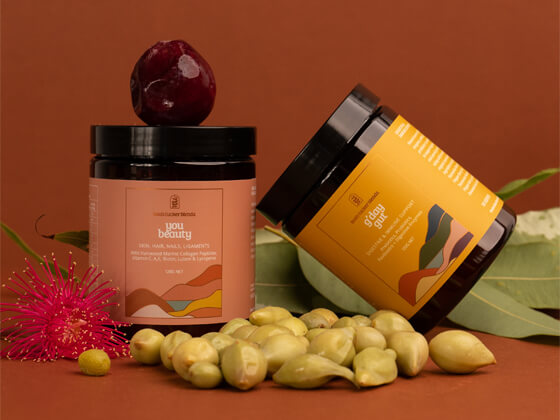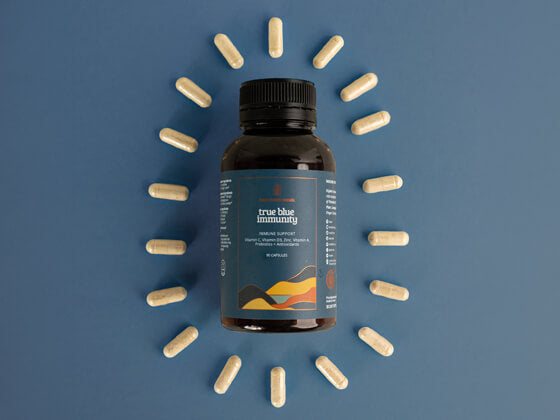It is a well-known fact that most supplements in today’s market are synthetic, being artificially made within laboratories by scientists. The general consensus is that synthetic nutrients chemical structures are almost completely identical to nature.
Then why choose a natural whole food supplement?
- A whole food like Kakadu plum, the star vitamin is vitamin C. However like in many whole-foods there are hundreds of other trace vitamins and minerals that don’t equate to a therapeutic dose and so are seen as insignificant. Now do you think mother nature got it wrong by adding insignificant doses of other vitamins and minerals? Of course not! They work together with the said star vitamin in a synergetic relationship helping to enhance optimal bioavailability and absorption.
- A synthetic supplement made in a lab cherry picks vitamins and minerals and provides it in a therapeutic dose but completely disregards the synergistic relationship of a whole-food.
Now you might be thinking that your synthetic supplement has other cofactors that help absorption, and you’d be right. But these co factors that scientists have researched and added into supplements don’t even begin to scrape the surface of the true magnitude of all other cofactors that are contained within any whole-food. It’s all these tiny and “insignificant” nutrients that allow the star vitamin to do its job the way nature intended.
How to tell if your supplement is synthetic or natural?
It’s actually pretty easy to spot a synthetic supplement once you know what you’re looking for.
A synthetic supplement:
- Won’t list any whole food ingredients rather you’ll see it listed as “vitamin C, folic acid, zinc etc”
A natural supplement
- Will list the whole foods on the ingredient list for example “Beetroot, Kakadu plum, Finger Lime etc”
Why take Wholefood supplements when you can just eat wholefoods?
- We evolved eating only wild caught and foraged foods which are dramatically higher in vitamins, minerals and good fats.
- Earth's soils are mostly depleted due to mono farming and glyphosate use and therefore carry much lower nutrient content than say 100 years ago.
- Our exposure to environmental toxins, lack of sunlight, chronic stress, fast food eating, bad quality of air, spending less time in nature is at an all time high leading to the body’s demand for higher nutrient needs.
- Processed foods which are consumed regularly in the western world carry no nutrients but leave us feeling full.
Consuming a Whole Food supplement vs whole foods
For example, having a teaspoon of a Wholefood supplement like Kakadu plum is like eating the equivalent of 20 x Kakadu plums therefore the potency for the serving size is far greater. In most cases it is hard to get a therapeutic dose of vitamins and minerals through just eating as you’d have to consume far too much.
In saying this we strongly encourage to complement your whole foods supplements with a whole food diet.
As we always say “You were put on this earth to consume nature.”
Start doing it.

Megan Haralampou
Naturopath, Herbalist, Nutritionist
BBioMedSci BClinSci








